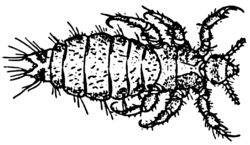Definify.com
Definition 2026
uts
uts
Latvian

Etymology
Usually derived from Proto-Indo-European *wēt-, *wet-, *ut-, from the stem *wē- (“to blow”) (whence also Latin vējš (“wind”), q.v.) with a suffix -t. J. Endzelīns, connecting this word to Old Prussian wutris (“blacksmith”), and noting the ancient link between the notions of “forging” and “pricking, piercing” (compare Latvian kalt (“to forge”), Russian колоть (kolót', “to pierce”)), suggested that the original meaning of uts was “that which pierces; stitch.” Another opinion is that uts (via *wet-, with a suffix -t) derives from Proto-Indo-European *eu- (“to feel”) (whence also Latvian just (“to feel”), q.v.), so that its original meaning would have been “that which is felt, which irritates.” A third suggestion is that uts comes from Proto-Indo-European *lus, *luH (“louse”) (compare Lithuanian liũlė, German Laus, English louse), a word which many daughter languages altered or abandoned, perhaps because of linguistic taboos; in the Baltic case, only the middle u would have been kept, with an extra suffix -t. Cognates include Lithuanian utėlė̃, dialectal utė̃, utìs.[1]
Noun
uts f (6th declension)
- louse, lice (many species of small insect parasites, all in the order Phthiraptera)
- galvas, drēbju uts ― head, clothes lice
- kaunuma uts ― pubic lice
- utu ķemme ― lice comb (for removing lice)
Declension
| singular (vienskaitlis) | plural (daudzskaitlis) | |
|---|---|---|
| nominative (nominatīvs) | uts | utis |
| accusative (akuzatīvs) | uti | utis |
| genitive (ģenitīvs) | uts | utu |
| dative (datīvs) | utij | utīm |
| instrumental (instrumentālis) | uti | utīm |
| locative (lokatīvs) | utī | utīs |
| vocative (vokatīvs) | uts | utis |
Derived terms
References
- ↑ Karulis, Konstantīns (1992), “uts”, in Latviešu Etimoloģijas Vārdnīca (in Latvian), Rīga: AVOTS, ISBN 9984-700-12-7